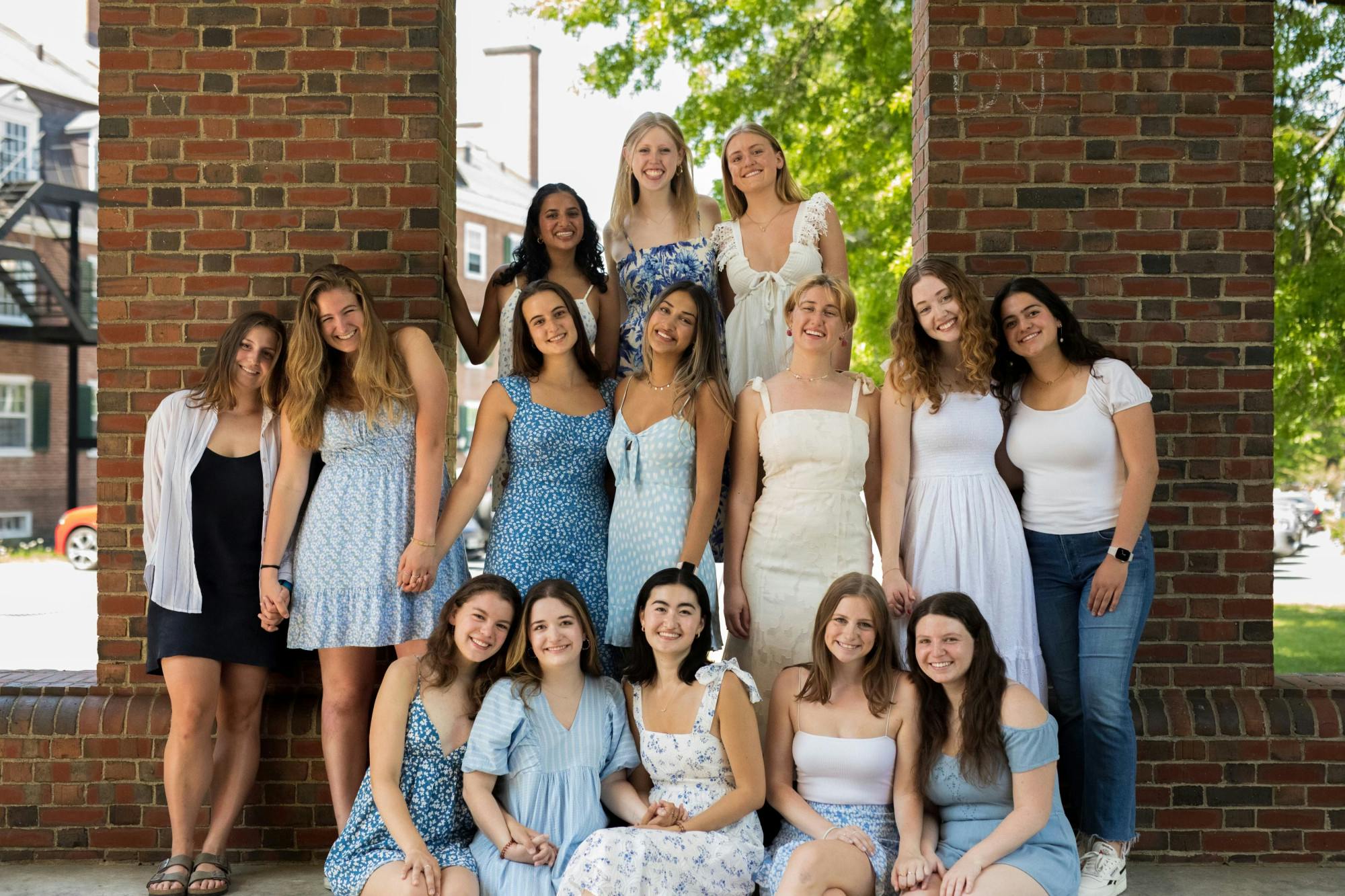Coming to college, many students look for a way to fit in at their new home. Some students find that sense of community through their shared love of singing and performance. This weekend, these a cappella organizations will hold auditions for a new cohort of students to perform within their ranks.
Dartmouth’s a cappella scene consists of eight campus groups. The Aires, the Brovertones and the Cords make up the all-male groups, while the all-female groups include the Decibelles, the Rockapellas and the Subtleties. Co-ed groups also have a strong presence on campus through the Dodecaphonics and the Sings.
According to Surina Prabhu ’24, a member of the Sings, the time commitment for a cappella is around six hours a week, with rehearsals usually falling on Tuesdays, Thursdays and Sundays. Other than performing at Dartmouth, a cappella can take students on tour around the country — and even the globe — while also providing opportunities to make recorded albums.
This year, auditions for a cappella fall on Saturday, Sept.16, and Sunday, Sept. 17. Although each a cappella group has their own specific audition process, they all follow the same general procedure: Higher voices and female-identifying students audition on Saturday, while lower voice and male-identifying students audition on Sunday, according to Prabhu.
The auditions themselves start with pitch-matching, where prospective members must sing the given notes as accurately as possible. Despite this seemingly technical task, Griffin Thomas ’24, the president of the Brovertones, said that formal training is not necessary, and he himself does not know how to read music. Similarly, Prabhu said an auditionee’s success is based more on “the solo basis of vocal talent,” than their formal training.
Auditionees then complete a circuit around all the groups, singing a verse and chorus of their chosen song to each group. Thomas recommended selecting “songs that are within your range, but also show off your range and just something you feel very comfortable singing and feel confident in.”
Alongside singing, Thomas also stressed the importance of showing one’s personality during auditions.
“Personally for the [Brovertones], we take the music very seriously, but we arguably take our culture more seriously,” Thomas said. “I look forward to rehearsal every day because I love the guys that are there, so bringing a good energy is always good.”
Following the first round of auditions, callbacks proceed, according to Prabhu. Students who receive callbacks are notified through their emails, but they remain in the dark about which group in particular they are called back for until they arrive at the audition.
Prabhu also explained that callbacks begin with performances from the a cappella groups to demonstrate each group’s capabilities and style. This allows auditionees to determine which group will be their first choice. Then, auditionees learn a section of the group’s song and often then sing a vocal part with the group to see how they fit in. However, if an auditionee’s first choice does not work out, there is still a chance to audition for the other a cappella groups that called them back, according to Thomas.
Unfortunately, a cappella groups usually see more students auditioning than they have capacity for, which means that not everyone who auditions may be able to join a cappella.
“The harsh reality is that you are going to fail at Dartmouth, but there are also other ways that you will absolutely flourish and succeed,” Prabhu said. “So I just want to remind everyone that this is not the be all or end all. You will ultimately end up where you are meant to be, and there are many other outlets on campus for music.”
For some, the open rehearsals prior to auditions beginning is a great time to decide whether or not the potentially nerve-wracking audition process is something they want to go through to become a part of the a cappella community. Decibelles member Becca White ’26 said that after attending the Decibelles’ open rehearsal last year, she decided to follow through with auditions. “I immediately loved the community and the vibe and knew that it was something I wanted to do,” White said.
For both Prabhu and Thomas, this sense of community was a crucial part of the a cappella experience.“I love the Sings with all my heart,” Prabhu said. “Not only do we rehearse together, but we also do meals and socials together. It’s just like a happy family.”
Thomas stressed the importance of strong inter-class connections the Brovertones has brought him and the supportive nature of their group through activities like weekly check-ins with all members.
“It was a really good support system for someone who is coming into a new environment and new community,” Thomas said. “It also provided a solid, core group of guys that have given me perspective, so I was really thankful for that.”
Additionally, this supportive environment facilitates a great mentorship experience between upper- and underclassmen, according to White.
“It’s been a great way to meet upperclassmen and to have a sense of community to rely on and people that will be there for my whole entire college experience, which is really comforting,” White said.
Most importantly, Prabhu said that the a cappella auditions process is about having fun and finding community. Prabhu offered advice to all auditionees: “Be yourself, we just want you to have fun. I know it may seem stressful and intimidating at times, but all the groups really do want you to succeed, to feel comfortable.”




